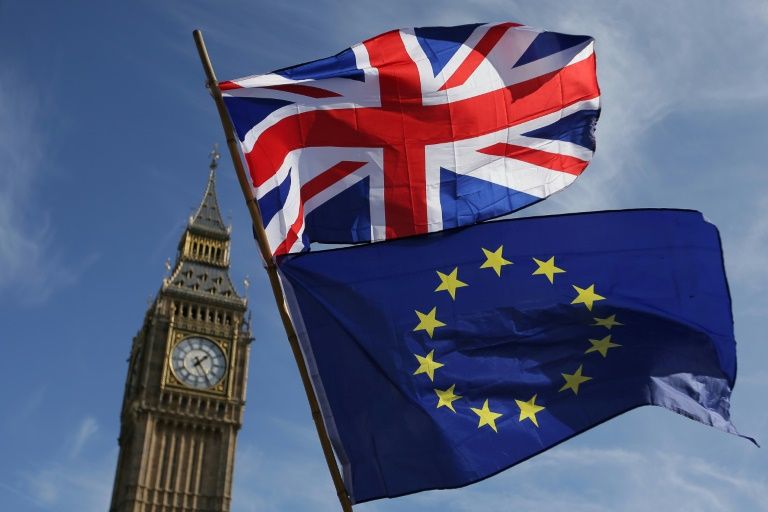Sticking points as post-Brexit talks enter final phase
Brussels (AFP) – Negotiations between Britain and Europe on their post-Brexit trade relationship are at a critical moment, with a deal needed within days if it is to be ratified this year.
Here is a look at the three main sticking points blocking an agreement and raising fears of a “no deal” divorce and economic disruption at the end of a transition period on December 31.
– Fishing –
European fishermen have long had access to Britain’s rich fishing waters — in some cases for centuries — and negotiators initially promised a quick deal to appease European fleets.
But inflexibility on both sides of the Channel made it impossible to reconcile two starting positions: the status quo of full access to UK waters for the European side, and total control of access for London.
The activity represents only a tiny part of both the economies, since Europeans each year catch only fish worth 635 million euros ($738 million) from UK waters and Britain 110 million euros from EU waters.
But the subject is politically explosive for a handful of member states — France, Spain, Belgium, the Netherlands, Denmark and Ireland — and hugely symbolic for pro-Brexit Britons.
The EU’s negotiator, Michel Barnier, reportedly told envoys on Friday that the UK was asking for European access to be slashed by 80 percent, while the EU was willing to scale back activity by 15 to 18 percent.
Complicating the situation are the potential cracks in unity among fishing states: the Netherlands and Belgium want rights to deep sea fishing, while France has its eye on coastal waters.
– Competition –
Britain wants a trade deal that would bring zero tariffs and zero quotas to cross-Channel business and, while Europeans are keen, they fear that this could allow the UK to become an offshore rival that makes its fortune with a deregulated economy that competes unfairly with EU businesses.
For example, would UK exporters be allowed more pollution when producers on the continent would have to meet strict environmental standards at a time when the fight against climate change is a big deal in Brussels.
On the environment, as well as on labour law and tax, Brussels wants London to commit to not back pedal on existing standards, something called a “non-regression” clause, and that these standards should evolve over time.
On state aid, the EU fears that the UK will subsidise its businesses and economy with lax controls, when EU rules are very strict.
Brussels is calling for both sides to agree on shared principles governing state aid and wants London to establish an independent authority that would maintain policy links with Brussels.
The solution could lie in a consultation mechanism where each side informs the other of its plans on state aid, or even in defining common rules.
In case of a failure, either side could take rapid counter-measures while awaiting final arbitration.
– Governance –
In seven months of negotiations, London and Brussels have still not been able to agree on the “governance” of the future agreement, i.e. the conditions for its implementation, its monitoring and the mechanisms to be put in place in the event of a dispute.
This became of paramount importance to Europeans after the government of Boris Johnson introduced a bill in the UK parliament that would reverse certain parts of the already concluded Withdrawal Agreement, which governs Britain’s departure from the European Union on January 31 this year.
The about-face undermined Brussels’ trust in London. The idea is to set up a dispute settlement mechanism similar to what exists in most trade agreements around the world.
These are usually arbitration tribunals, which issue binding decisions when one of the two parties feels that the agreement has not been respected.
The EU had wanted the EU’s highest court, the European Court of Justice, to have its say in all matters of the future agreement relating to European law, but the UK refused this in the name of its sovereignty.
Disclaimer: Validity of the above story is for 7 Days from original date of publishing. Source: AFP.


